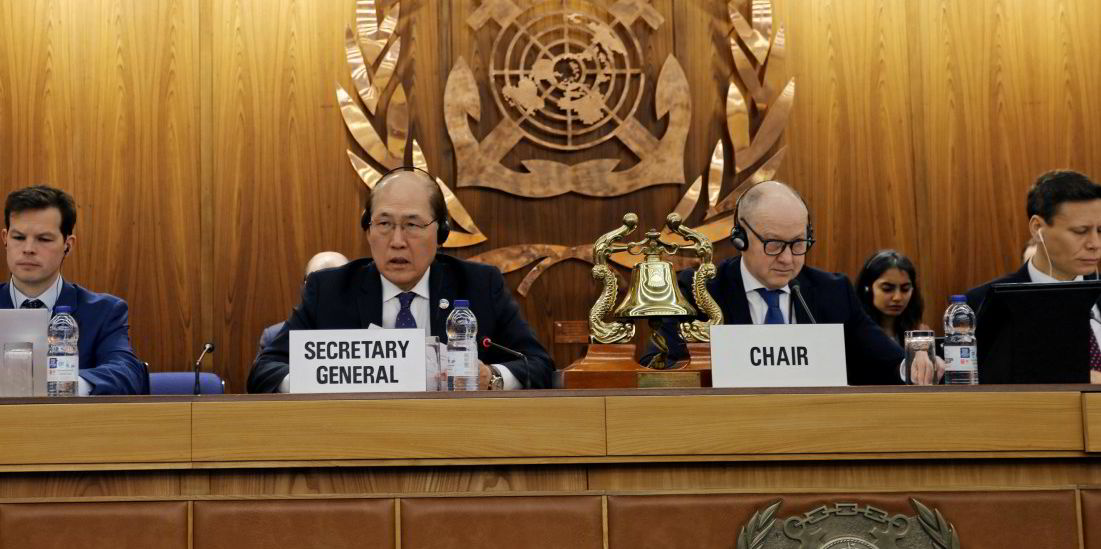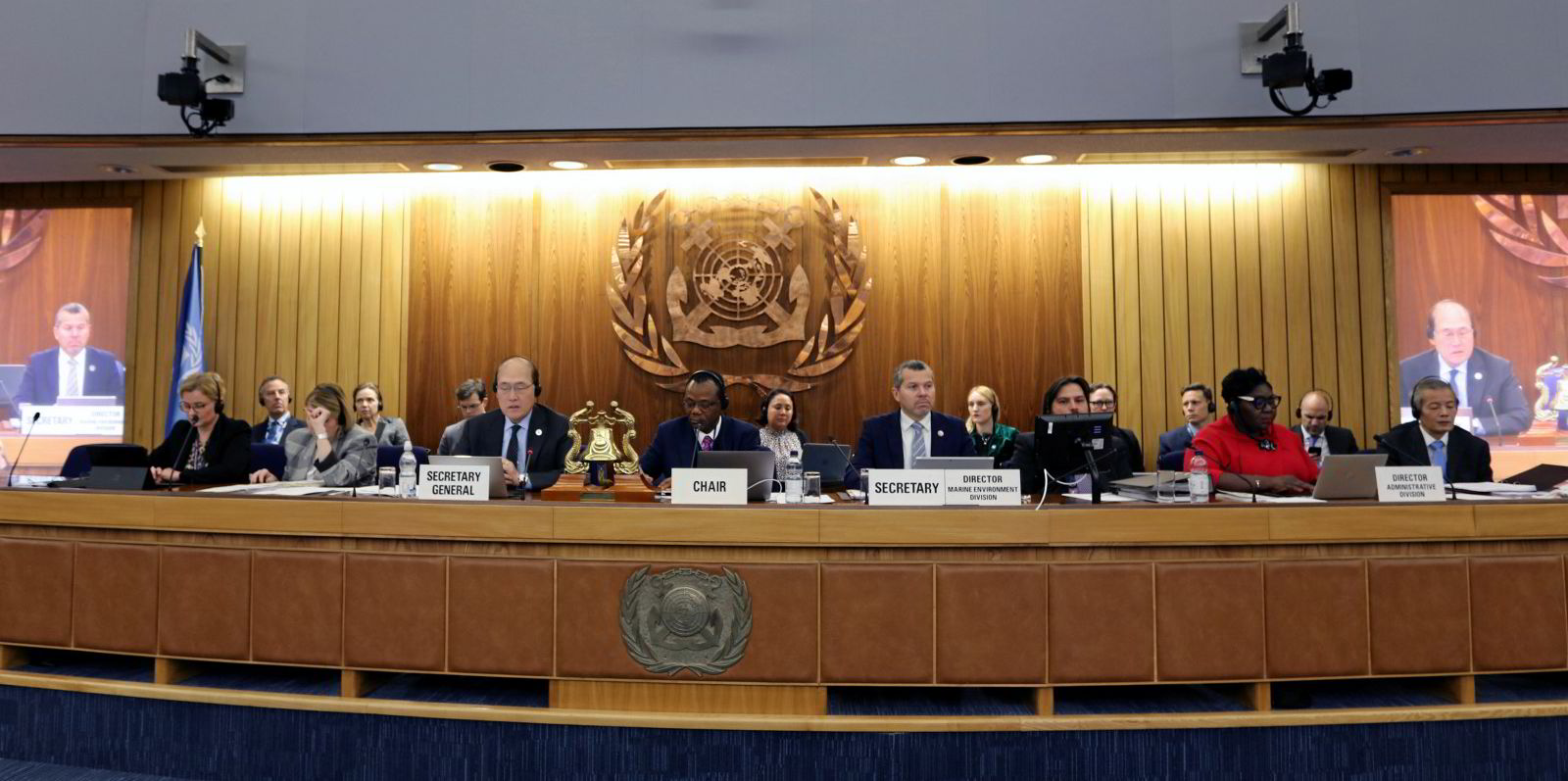International Maritime Organization member states are moving towards a consensus favouring net zero by 2050, secretary general Kitack Lim said on Monday.
“As far as I know, general consensus is growing toward net zero 2050 among our member states,” he told TradeWinds following a meeting with the Norwegian Shipowners’ Association at the start of the week’s Nor-Shipping event.
“I think it will be a good outcome at [Marine Environment Protection Committee] 80 in one month’s time.”
The committee meeting — beginning on 3 July at IMO headquarters in London — will discuss revising the organisation’s strategy for reducing carbon emissions and has been described as a major potential turning point for global shipping and the IMO.
As it stands, the goal is to cut emissions by 50% by 2050 from a 2008 baseline, but several of the world’s largest economies and environmental groups have pushed to reduce the target to net zero or absolute zero instead.
Pushback has come from countries such as China, Saudi Arabia, Brazil, India, South Africa and Russia, which argue that they will be disadvantaged by the move.
But Lim said consensus is moving “positively” in the direction of net zero.
“That’s why overall the IMO will be successful. Maybe a little part of the member states will not be happy, but I think the majority will achieve a consensus,” he said.
The Norwegian Shipowners’ Association supports net zero by 2050 and has its own climate targets, including pulling the IMO’s current targets forward by 20 years to 2030 and an ambition to order only vessels with zero emission technology from 2030.
Chief executive Harald Solberg described the meeting with Lim as “very productive, very positive” and said the discussion included how Norwegian firms can incentivise shipping’s move towards net zero.
“Based on the latest signals, yes, we’re confident and optimistic,” Solberg said. “We need to succeed. We need to have this ambition in place … but the proof of the pudding is in the decision in July.”
Past association president and current Wallenius Wilhelmsen chief executive Lasse Kristoffersen said before the meeting that approving net zero is important for the IMO to stay relevant.
“I think this is actually a moment of real substantial significance,” he said, noting that if the IMO fails, the European Union would step in to enforce its own regulations, followed by others.
“The whole credibility of IMO as global regulator of emissions is at stake,” Kristoffersen added. “Again, it’s not a question of whether we would like to do it or not. It’s a question of who will regulate.”





